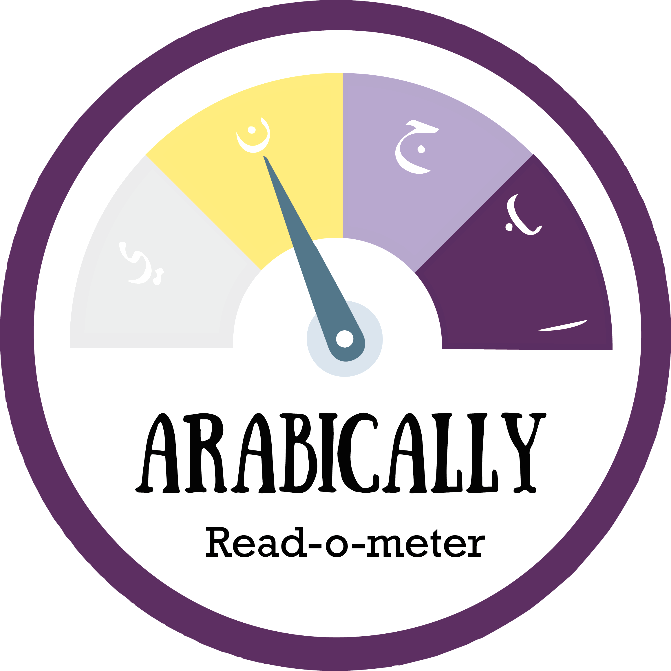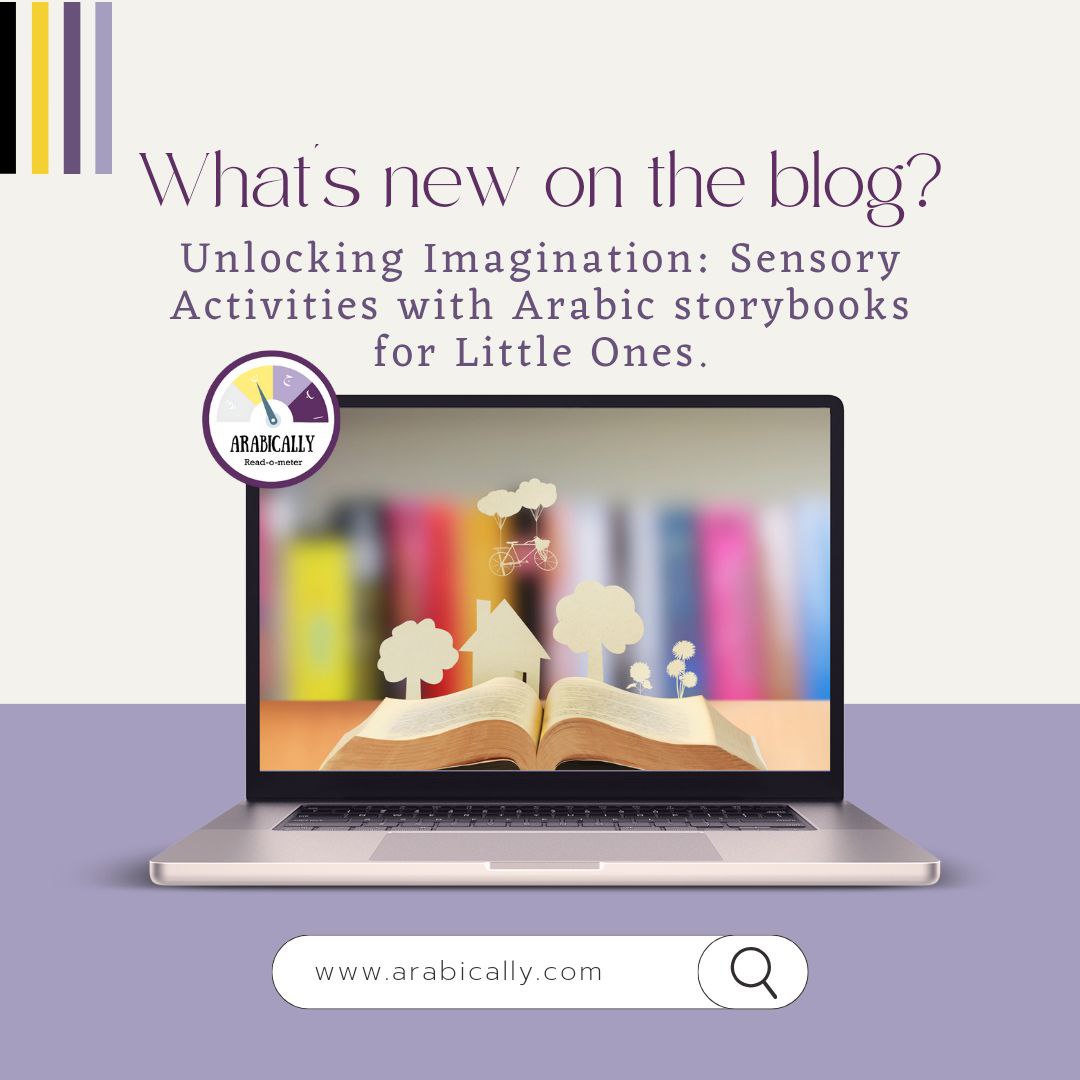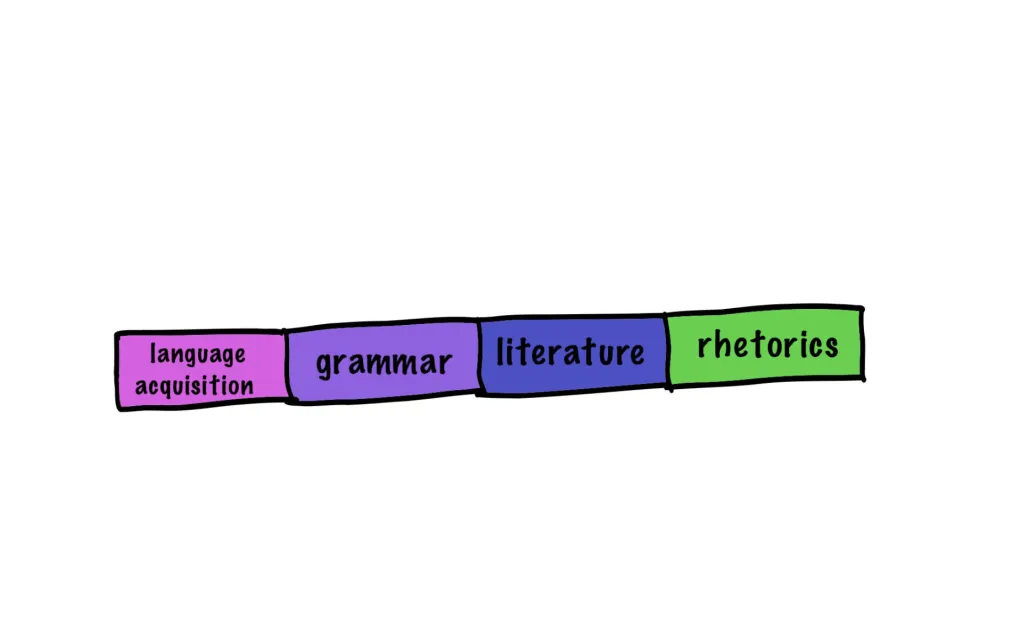
Learning Arabic Through Play!
Blog by: Umm Ar Rihan
The most powerful thing in our journey of raising our children is playing and having fun with them. This way we’re not only spending time together as a happy family, making memories, but are also using the time together to bond, share values, and teach them important skills in life.
When it comes to learning and teaching them a second language, the same ideas need to be applied.
Introducing a second language through play will make it easier to absorb and it will help add more information in an undirected way. For example, when it comes to learning Arabic as a second language, there are so many fun ways to learn while bonding with your child/children.
However, in order to have fun learning a second language, we have to set some rules.
1. Having fun is a priority
While you aim to teach a second language, don’t forget that children want to play, don’t be strict and take it easy.
2. Accept kids imagination in building games
This will make kids feel like they are the leaders and build their confidence in learning new things.
3. Bilingual Dialogue
It is OK to use both languages while playing, even if you are trying to teach more vocabulary and grammar. It doesn’t always have to be a complete immersion. It will be easier for the kids to use their native language while they are learning, and it will build confidence in their abilities to use the target language gradually.
4. Don’t wait for the right time to play
Some parents might use the time waiting to make up games. For instance, like waiting for a food order or on the way home while you are driving, or maybe before bedtime. There is no specific time limit for these games, so you can finish in a fast period of time and if the child wishes to continue playing he/she can do so too. A few minutes can make a difference.
5. Choice of games
While some games need the child to only memorize some words and phrases, other games need physical activities, so make sure to choose a safe place to do so.
6. Game Rules
Set clear, simple, and specific rules for the game will make it easier to play and enjoy.
7. Repeating is the key
When you repeat the same game over and over, it allows the kids to repeat the same vocabulary and phrases that will help them memorize them and use them any time they need to.
Here I will share some games I played with my kids to help them learn more vocabulary in Arabic.
Number Word Game
Throw the dice. Then you have to say a word containing the same number of letters that appear on the dice.
Check how many numbers you have landed on then say a word that has the same number of letters. For example: If you throw the dice and it lands on 3 you can say بيت، باب، درج
Note:
Sometimes it’s difficult to find a word with 5 or 6 letters at the beginner level, so what you can do is add ال to any word of 3 or 4 letters and you will win, for example, if the dice landed on number 5 you can say البيت or الباب or الدرج.
Also, you can choose any object around you as a clue to remember a word. If you want to look into a storybook and find a word that had that many letters, that works too.
A word starts with the letter [. ]:
You can choose any letter and encourage your child to remember any word that starts with this letter
For example: اعطيني كلمة تبدأ بحرف الباء
So your child has to say any word starting with ب like باب بطيخ بطة …..
Words parts game
This game is one of my favorites. I play this game with my kids when I want to teach them about المقطع الساكن والمقطع المتحرك
So when I say ما, the kid has to complete the word with the right completion like جد or لِك or هِر
So it will be ماجد or مالك or ماهر
Another example you can say سا
And your kids will say for example رَ or لَ so it becomes سارَ or سالَ
Our recent release “Summer in the Kitchen” worksheet is the go-to resource to get your child creative in Arabic.
————————————————————————————————————
We are glad to announce the onboarding of Umm Ar Rihan as a tutor at Arabically who has pen down this fun blog. مرحبا
As an Arabic tutor, Umm Ar Rihan is passionate about sharing the beauty and richness of the Arabic language and culture. With years of experience, her lessons are tailor made to suit individual learning styles, making the process engaging and effective.She has extensive expertise in both Arabic grammar and language basics and can provide clear explanations of the language’s foundational elements, including the alphabet, pronunciation, and essential grammar rules through interactive lessons and practice exercises.
If you are looking for an online Arabic tutor with interactive classes look no further and book your free demo class here.




